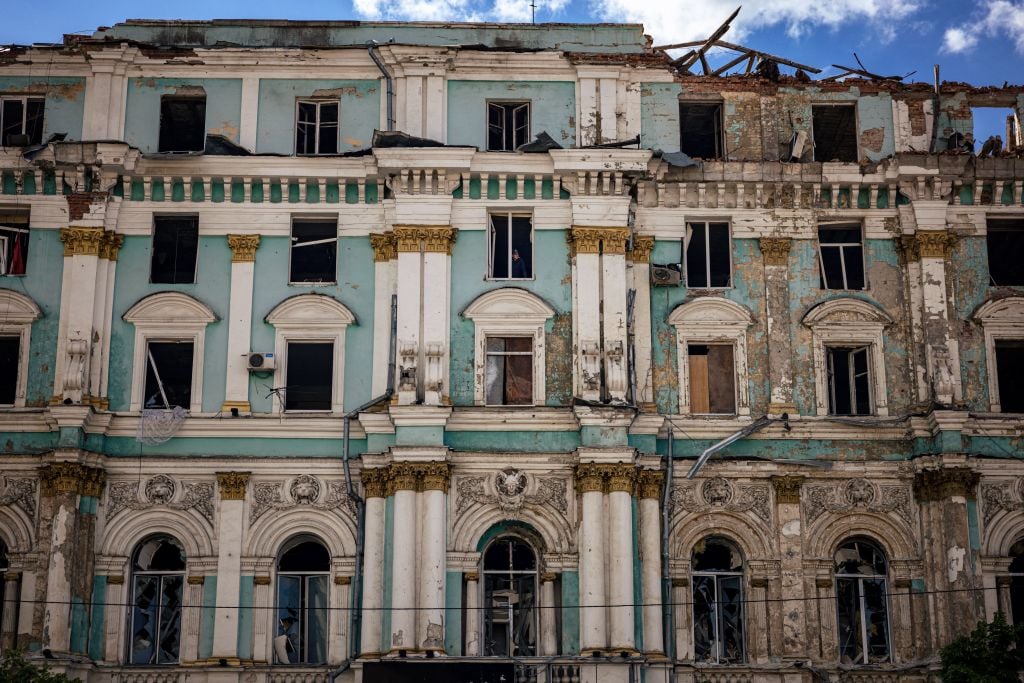
Last Friday, a Russian missile razed a newly renovated Palace of Culture in Eastern Ukraine. Eight people were injured in the incident, including an 11-year-old child.
The news was announced by Ukrainian President Volodymyr Zelensky, who said the attack shows that Russia has “identified culture, education, and humanity as their enemies.”
“What is in the minds of people who choose such targets?” Zelensky wrote on Telegram. “Absolute evil, absolute stupidity.”
Accompanying his post was a security video of the missile striking the institution, located in the Kharkiv region of Eastern Ukraine. The footage shows the building cratering in on itself before being engulfed in a massive plume of smoke and debris. Pedestrians can be seen running from the site; one passing car abruptly pulled off the road, another sped away.
Kharkiv regional governor Oleg Sinegubov confirmed the attack, noting the victims were all hit by shrapnel. The fire that erupted after the strike damaged nearby buildings as well, but all flames were eventually extinguished.
“There is no doubt the occupiers directly targeted (it),” he said of the Palace of Culture, which comprised an auditorium, lecture hall, and gym. The venue was built in 1977 and is the only major cultural institution in the area.
The missile was one of three deployed by Russian forces in Kharkiv that day, Sinegubov explained, pointing out that the other two were intercepted.
The Palace is far from the only cultural destination targeted in the ongoing—and increasingly calamitous—Russian occupation. Earlier this month, an artillery strike destroyed the historic home of 18th-century Ukrainian poet and philosopher Hryhorii Skovoroda, also located in Kharkiv.
At the time, President Zelensky estimated that Russian forces have damaged or destroyed nearly 200 cultural heritage locations since the onset of the war in February, including the Kuindzhi Art Museum and the Babyn Yar Holocaust memorial complex.